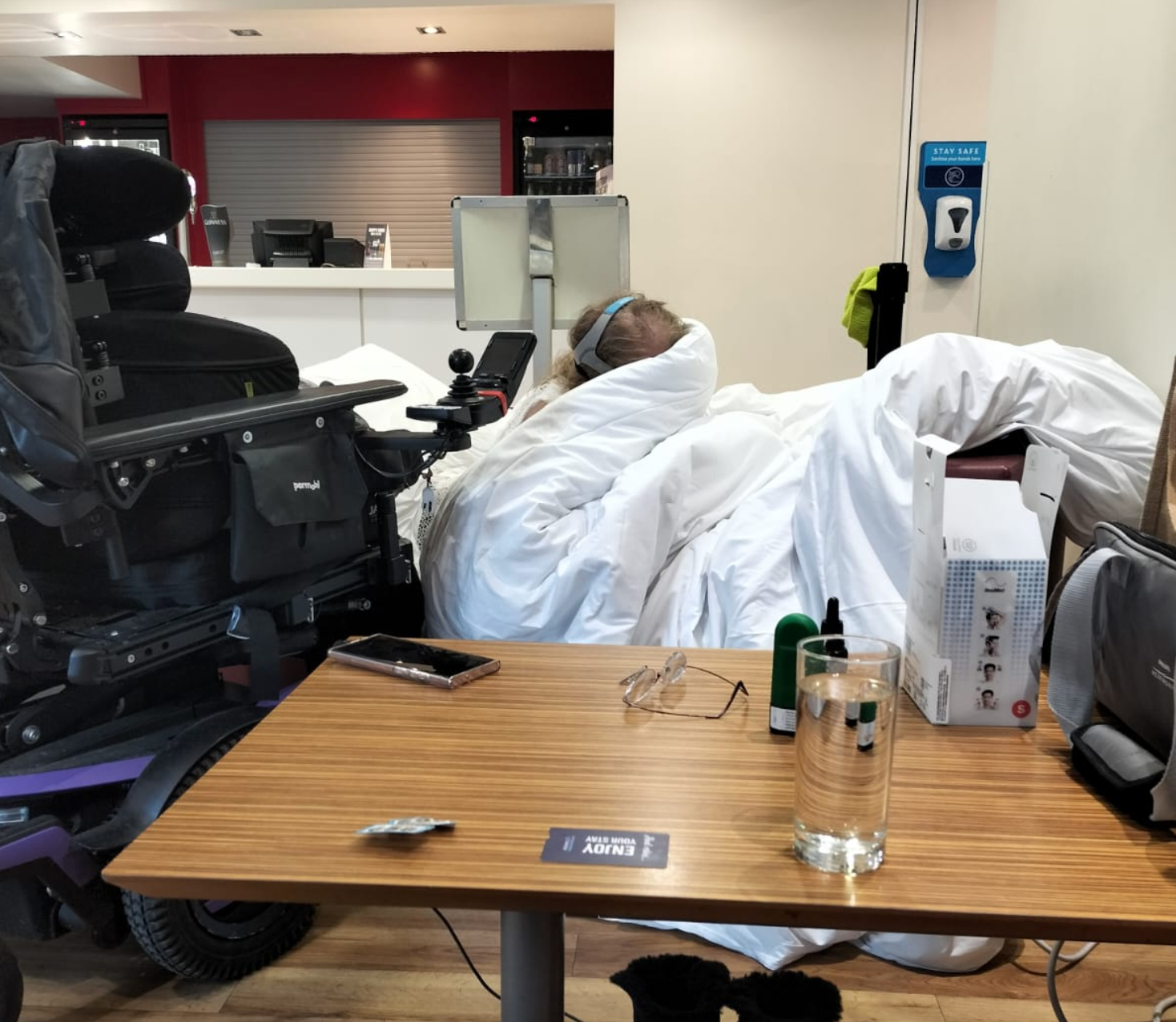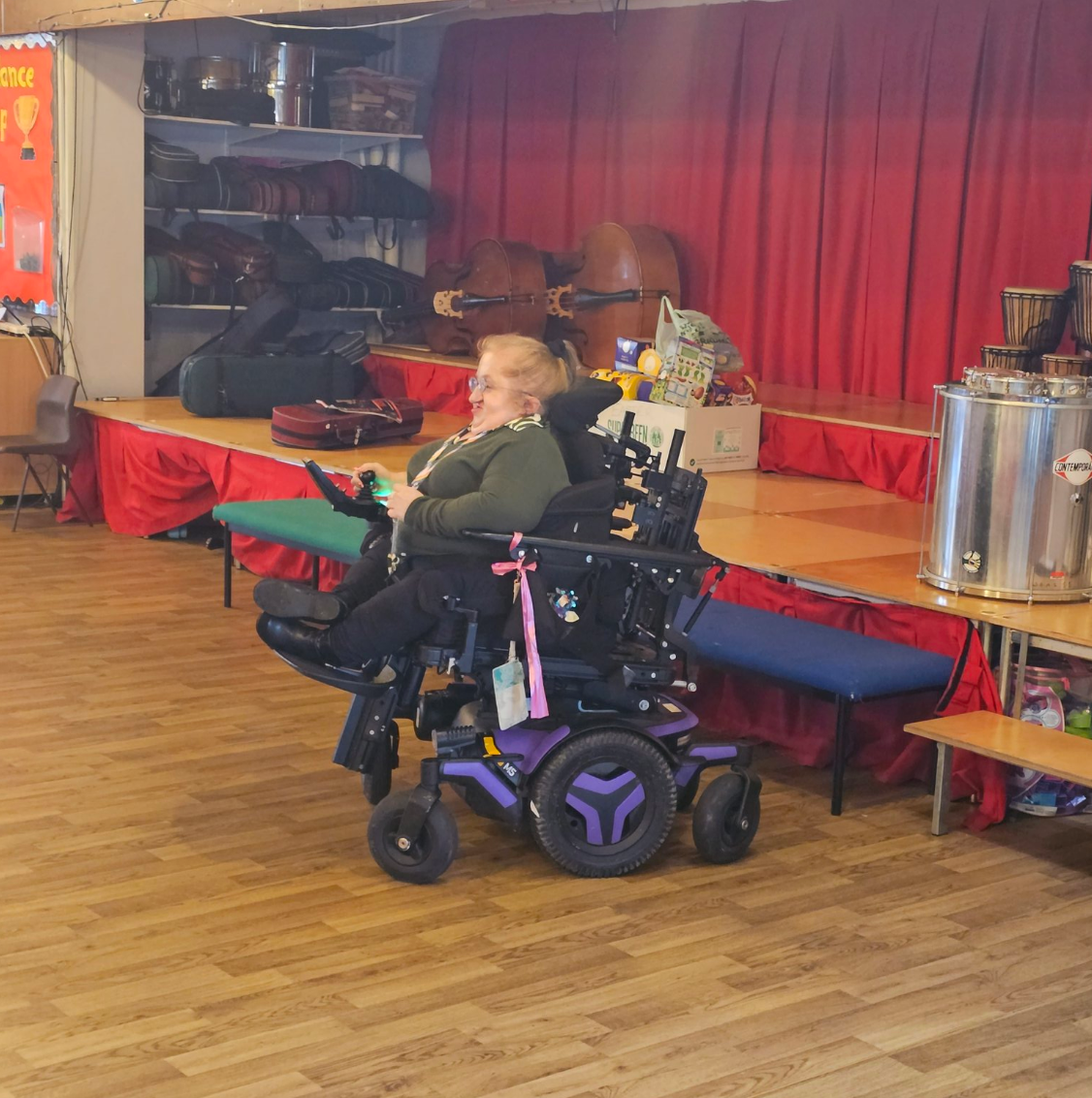
A woman who uses a wheelchair and requires a ventilator overnight was forced to sleep on a Travelodge dining room sofa after being told the accessible room she paid for was “out of order”.
Kat Watkins, who has brittle bone disease and sleep apnoea, said she was still in pain nearly four weeks after the “incredibly frustrating” incident on 26 April, which has knocked her confidence in being able to travel.
The 36-year-old UN development officer at Disability Wales had booked an accessible twin room at the Travelodge in Hounslow for herself and her PA while they travelled from south Wales to see James Bay perform at the Royal Albert Hall.

But upon arriving at the hotel in a carefully planned journey, Ms Watkins said she was told that all of the accessible rooms were “out of order”.
With no other suitable rooms available, the hotel agreed to arrange for a taxi to take Ms Watkins from Hounslow to an accessible room at the Twickenham Travelodge after she returned from the concert, given that many Tube stations do not have wheelchair access.
After arriving back in Hounslow at 12.30am though, staff were unable to find a suitable taxi, and the previously “out of order” rooms had all since been filled, according to Ms Watkins.
With no solution reached by 2.30am, Ms Watkins – already “tired and in pain” – and her PA, Anabela, were forced to bed down on two sofas in the hotel’s dining room.
“I had to drive back to Wales the next day and I needed some rest, plus my breathing was getting more and more shallow because I am a ventilator user,” Ms Watkins told The Independent.

“[Anabela] had to ask for everything, like a glass of water, duvet, pillows and heater, because it was cold as well, it was really quite cold down there. That actually got switched off at some point in the night, the heater that was keeping us warm.”
Describing her night’s sleep as “really quite terrible”, Ms Watkins said: “The amount of pain that I was in was really quite bad because the sofa was incredibly hard. I have osteogenesis imperfecta ... so my bones break quite easily, and I can’t really sit or stay on anything hard because it’s just really bad for my body.”
Four weeks later, and the incident is still causing Ms Watkins pain. She said: “My hips and my back have not been right since, at all, which is quite annoying because they had got into quite a good place where they weren’t causing me too [many] issues. But that really set them off again.”
Despite having travelled to London to reunite with a friend at the concert whom she had not seen for six years, Ms Watkins said it was now “hard to remember” the concert itself, adding: “This has just overshadowed everything and it’s been hard for me to look back on it in a positive light.”
Travelodge said “it would like to sincerely apologise” to Ms Watkins and her PA, adding: “On this rare occasion we failed to meet our normal high standard of service. We should have informed Ms Watkins ahead of checking-in that her room was out of order and that we had moved her booking to one of our nearby hotels.
“We are very sorry for the inconvenience of this miscommunication and we have refunded the booking in full and offered an e-voucher for a future stay. We hope that we can welcome back Ms Watkins and reinstate her faith in our brand.”
But Ms Watkins likened the apology to a “slap in the face”, having allegedly received no phone calls from the company about the incident and only an email which seemed “very impersonal”.
“That’s just really hard because an open dialogue is a nicer way of getting things sorted, and them asking what they can do to make things better or put things in place so it doesn’t happen again,” she said.
Speaking more broadly, Ms Watkins, suggested that if public spaces and buildings were more accessibly designed at the construction stage, experiences such as her own last month would be less frequent.
Noting that disabled people account for at least 17 per cent of the population in England and Wales, she said: “We’re nearly a fifth of the population, there’s a lot of us, and we need to be included in society and not just an afterthought of society.”







